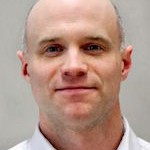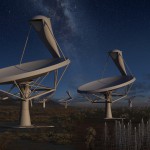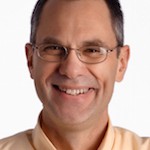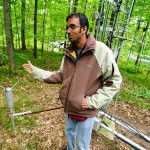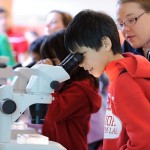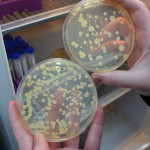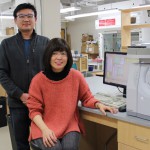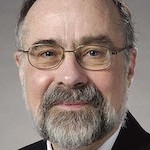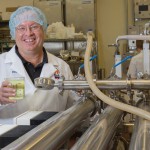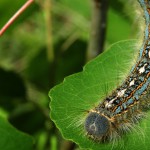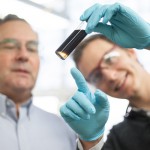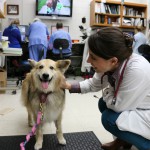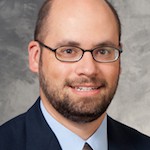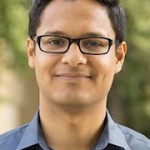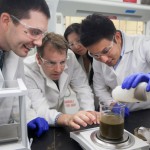Tag Research
Researchers aim to broaden understanding of how toxins affect the body
Even in an era in which there is increased emphasis on living "green," humans are constantly exposed to a wide range of toxins in everything from our air, food and water to the goods we buy.
Automation offers big solution to big data in astronomy
It’s almost a rite of passage in physics and astronomy. Scientists spend years scrounging up money to build a fantastic new instrument. Then, when the long-awaited device finally approaches completion, the panic begins: How will they handle the torrent of data?
Discovery could yield more efficient portable electronics, solar cells
By figuring out how to precisely order the molecules that make up what scientists call organic glass — the materials at the heart of some electronic displays, light-emitting diodes and solar cells — a team of chemists from the University of Wisconsin–Madison has set the stage for more efficient and sturdier portable electronic devices and possibly a new generation of solar cells based on organic materials.
UW mascot Bucky Badger is namesake for newly discovered yeast
When you discover a new organism, you get to name it - but not for yourself. There are rules to the naming business in biology. You can, however, name it for the sponsor of your research. When Chris Hittinger and his group of yeast researchers at the University of Wisconsin–Madison found a rather aggressive yeast, it was natural to name it for the fierce carnivore that is the mascot of his home institution: Bucky Badger.
Researchers develop new approach that combines biomass conversion, solar energy conversion
In a study published March 9 in Nature Chemistry, University of Wisconsin–Madison chemistry Professor Kyoung-Shin Choi presents a new approach to combine solar energy conversion and biomass conversion, two important research areas for renewable energy.
Move over Mozart: Study shows cats prefer their own beat
As more animal shelters, primate centers and zoos start to play music for their charges, it’s still not clear whether and how human music affects animals. Now, a study from the University of Wisconsin–Madison shows that while cats ignore our music, they are highly responsive to “music” written especially for them. The study is online at Applied Animal Behaviour Science.
Center for Dairy Research turns yogurt waste into new products
With exploding consumer demand for Greek yogurt, production is up. That's great for food companies' bottom lines, but it also leaves them dealing with a lot more acid whey, a problematic byproduct of the Greek yogurt-making process.
Search narrows for UW–Madison research leader
Four finalists have been named for the University of Wisconsin–Madison’s top research and graduate education post.
Munching bugs thwart eager trees, reducing the carbon sink
A new study published today [Monday, March 2, 2015] in Nature Plants shows that hungry, plant-eating insects may limit the ability of forests to take up elevated levels of carbon dioxide in the atmosphere, reducing their capacity to slow human-driven climate change.
Study reveals possible biological trigger for canine bone cancer
Researchers at the University of Wisconsin–Madison School of Veterinary Medicine (SVM) have identified the biological mechanism that may give some cancer cells the ability to form tumors in dogs. The recent study uncovered an association between the increased expression of a particular gene in tumor cells and more aggressive behavior in a form of canine bone cancer. It may also have implications for human cancers by detailing a new pathway for tumor formation.
UW to test ‘breakthrough’ pediatric leukemia treatment
A promising method of immunotherapy to treat children with relapsed acute lymphocytic leukemia (ALL) is opening at the University of Wisconsin Carbone Cancer Center and American Family Children's Hospital. The trial is open to relapsed/refractory pediatric ALL patients who have limited treatment options.
Professor studies impact of Chicago gang violence
Robert Vargas, an assistant professor of sociology at UW–Madison, didn’t set out to study gang violence in impoverished Chicago neighborhoods, but once he saw its power over the community, he quickly shifted his area of research.
Computer sciences, mathematics professors win Sloan Fellowships
Two University of Wisconsin–Madison professors have been selected for Alfred P. Sloan Research Fellowships - an honor awarded on a competitive basis to promising young researchers in the early stages of their careers.
Helping Wisconsin dairy farms produce ‘brown gold’
In the heart of Wisconsin, a project is underway to produce energy from a resource in little danger of running low: cow manure, also known as "brown gold."

